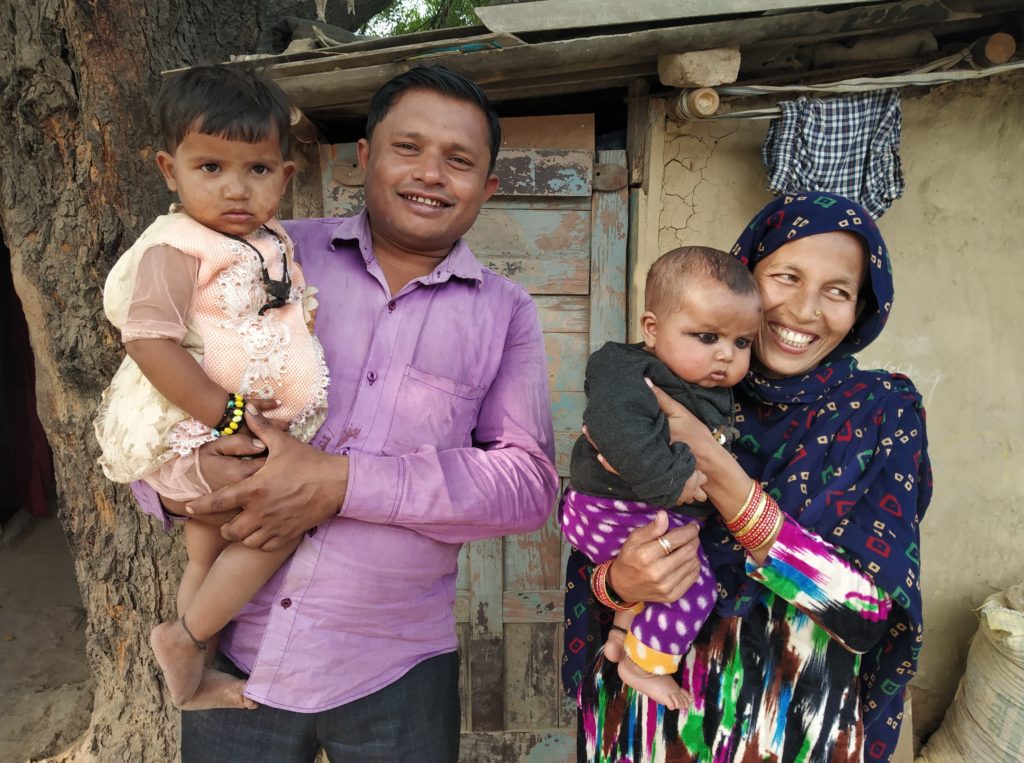What Works in Family Planning and Reproductive Health, Part 1: Male Engagement
New series gives readers a detailed roadmap of successful FP/RH programs

Today, Knowledge SUCCESS is pleased to announce the first in a series that documents “What Works in Family Planning and Reproductive Health.” The new series will present, in depth, essential elements of impactful programs. The series uses innovative design to address some of the barriers that traditionally discourage people from creating or using documents that share this level of detail.
For our first edition, we feature The Challenge Initiative for Healthy Cities (TCIHC)’s male engagement strategy, which used community health workers to promote uptake of vasectomy in urban poor communities in India. In partnership with the Uttar Pradesh state government, and funded by the Bill & Melinda Gates Foundation, TCIHC engaged men in their typical gathering points through urban community health workers, known as “accredited social health activists” (ASHAs). The goal of the approach was two-fold:
- To increase men’s involvement in family planning, and
- To improve their awareness of and voluntary use of non-scalpel vasectomy.
The program’s results are impressive: In the 20 cities where TCIHC operates, between February 2019 and January 2020 (during the program’s implementation), men’s adoption of non-scalpel vasectomy increased by 87% compared to the same time period from the previous year.
Why did we create this new series?
The new “What Works in Family Planning and Reproductive Health” series comes from ideas and insights shared during four regional co-creation workshops that Knowledge SUCCESS held in 2020 with family planning and reproductive health (FP/RH) professionals.
When asked what challenges they face to improving programs, workshop participants shared that FP/RH program best practices are not always comprehensively documented, contextualized, or packaged in a way that’s easy to use. They also said there’s a lack of information on lessons learned about what doesn’t work in FP/RH—information that could help them avoid repeating mistakes.
“Although there are a number of FP programs being conducted, documentation of what works is not adequate. As a result, it’s not obvious to see clearly what works in FP programs. Challenge of diverse nature of cultures, localizing the evidence and best practices within a certain context is a challenge to actually move FP programs forward.” – Knowledge SUCCESS co-creation workshop participant
Some of the workshop participants pointed to the lack of a standard template for documenting best practices as a barrier to sharing this type of information with other professionals.
“There is no standard template on what you should write on a best practice – often end up sharing information that is not useful.” – Knowledge SUCCESS co-creation workshop participant
The World Health Organization (WHO) has developed such templates to help health professionals document important details of implementation, context, and impact to support effective replication and scale-up. For example, the WHO Guide to Identifying and Documenting Best Practices outlines the types of information that health officials need when considering replicating a best practice. In addition, the WHO Programme Reporting Standards for Sexual, Reproductive, Maternal, Newborn, Child and Adolescent Health (SRMNCAH) provides guidance to program implementers and researchers on how to report complete and accurate details on the design, implementation, monitoring, and evaluation processes of SRMNCAH programs.
The new Knowledge SUCCESS “What Works” template
What we heard during our co-creation workshops is that the missing piece of the puzzle is to package those details in a way that’s easy for health professionals to digest and put into practice. Our new “What Works” series aims to fill this gap. We adapted the templates from the two seminal WHO guidance documents noted above to describe what was done, when, where, how, and by whom. Important details about program experiences are presented in short, visual, and useful tidbits which can be consumed in under a minute. Breaking down a comprehensive program document into these pieces of “microcontent” allows readers to explore the details at their own pace. Readers can also quickly navigate to key aspects that they are interested in learning more about, for example:
- Background to learn about the context,
- Intervention to learn about how the program was implemented,
- Results to find out about impact, or
- Key Implications for lessons learned and information about sustainability, scale-up, and adaptability.
Traditionally, documents that explore program details are shared in a lengthy PDF format, with lots of text and figures. Readers are presented with all the information at once. Behavioral science tells us this can be overwhelming and ultimately result in inaction. We address this overwhelm issue by presenting the information in interactive, easily-consumable chunks.
“… because we work in silos we have a habit of reinventing the wheel and we are not learning from one another. … we are doing the same thing over and over again instead of disseminating amongst each other and drawing on what each other is doing.” – Knowledge SUCCESS co-creation workshop participant
Tell Us What You’d Like to Know
We invite you to explore our new series, and let us know what you think. Is this format useful for you and your program planning needs? Does it provide a sufficient amount of detail to understand the approach? Does it support you in decision-making for your program?
Tell us in the form below.
We’d also love to hear from you if you would like to contribute a program experience to this series. Let’s learn from each other!





